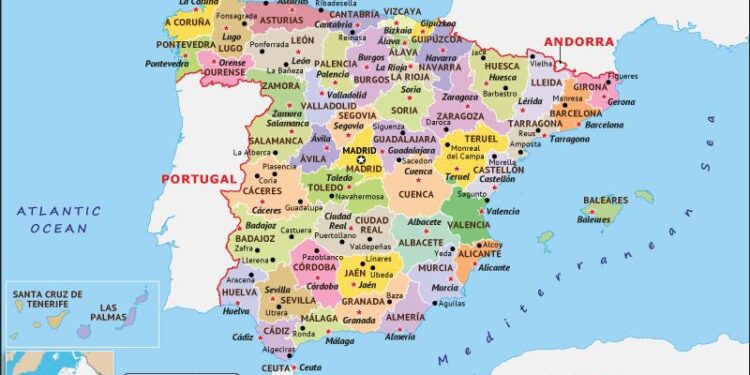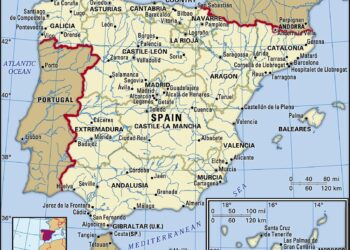Spain is bracing for an intense heatwave this August, with temperatures soaring up to 43°C, according to Euronews.com. The extreme heat is expected to affect large parts of the country, posing significant health risks and putting pressure on local infrastructure. Authorities are urging residents to take precautions as the soaring mercury threatens to break seasonal records and exacerbate drought conditions.
Spain Endures Severe August Heatwave with Temperatures Soaring to 43°C
Spain is currently grappling with an intense heatwave that has driven mercury levels to unprecedented heights, reaching up to 43°C in several regions. This extreme weather event has triggered widespread concerns among meteorologists and public health officials, who warn that such soaring temperatures pose significant risks, particularly to vulnerable populations such as the elderly and outdoor workers. The relentless sun and dry conditions are exacerbating drought in parts of the country, leading to increased wildfire activity and water shortages.
Authorities have implemented a series of emergency measures aimed at mitigating the heatwave’s impact, including:
- Heat health warnings across most provinces
- Public cooling centers opening in urban areas
- Restrictions on outdoor activities during peak afternoon hours
- Enhanced fire prevention patrols in high-risk zones
| Region | Peak Temperature (°C) | Humidity (%) |
|---|---|---|
| Andalusia | 43 | 25 |
| Madrid | 41 | 30 |
| Catalonia | 39 | 35 |
Health Authorities Issue Urgent Guidelines to Protect Vulnerable Populations
In response to the unprecedented heatwave sweeping across Spain, health authorities have urgently released a set of precautions aimed at shielding vulnerable groups, particularly the elderly, children, and those with chronic illnesses. Emphasizing the severity of temperatures soaring up to 43°C, officials advise minimizing outdoor activities between 11 a.m. and 6 p.m., increasing fluid intake, and seeking air-conditioned environments whenever possible. Public health campaigns are being intensified nationwide to ensure clear communication of these critical safety measures.
Key guidelines include:
- Regular hydration: Drinking water every 15-20 minutes, even without feeling thirsty.
- Wear lightweight clothing: Loose, light-colored fabrics to promote ventilation and reduce heat absorption.
- Use of cooling aids: Fans, damp cloths, or mist sprays to lower body temperature.
- Check on neighbors: Especially those living alone or with mobility issues.
| Risk Group | Recommended Action | Key Warning Signs |
|---|---|---|
| Elderly (65+) | Stay indoors in cool areas | Dizziness, confusion |
| Children | Limit outdoor playtime | Rapid breathing, fatigue |
| Chronic Patients | Take medications as prescribed; avoid heat exposure | Irregular heartbeat, fainting |
Infrastructure and Energy Systems Strain Under Rising Demand Amid Extreme Heat
The soaring temperatures, nearing 43¬∞C in several regions, have placed unprecedented pressure on Spain’s infrastructure and energy networks. Power grids are running at near capacity as demand for air conditioning and cooling systems spikes across residential, commercial, and industrial sectors. Authorities report multiple localized blackouts, particularly in urban areas where energy consumption has surged by over 15% compared to average summer days. Transport systems, including rail and road networks, are also experiencing disruptions, with heat-induced rail track deformations causing delays and mandatory speed reductions.
In response, emergency protocols have been activated to manage the heightened load on utilities. The government is encouraging energy conservation measures to prevent further outages, including:
- Shifting non-essential industrial operations to off-peak hours
- Increasing public transport schedules to reduce private vehicle use
- Providing cooling centers and shaded public spaces for vulnerable populations
| Infrastructure | Current Status | Impact |
|---|---|---|
| Power Grid | Near capacity | Localized blackouts |
| Rail Networks | Heat-related track stress | Delayed services |
| Water Supply | Increased usage | Strain on reserves |
In Conclusion
As Spain continues to grapple with soaring temperatures reaching up to 43°C, authorities urge residents to stay vigilant and take necessary precautions against heat-related risks. With climate change contributing to the increasing frequency and intensity of such heatwaves, experts emphasize the importance of long-term strategies to mitigate their impact. Euronews will keep monitoring the situation and provide updates as conditions evolve.














